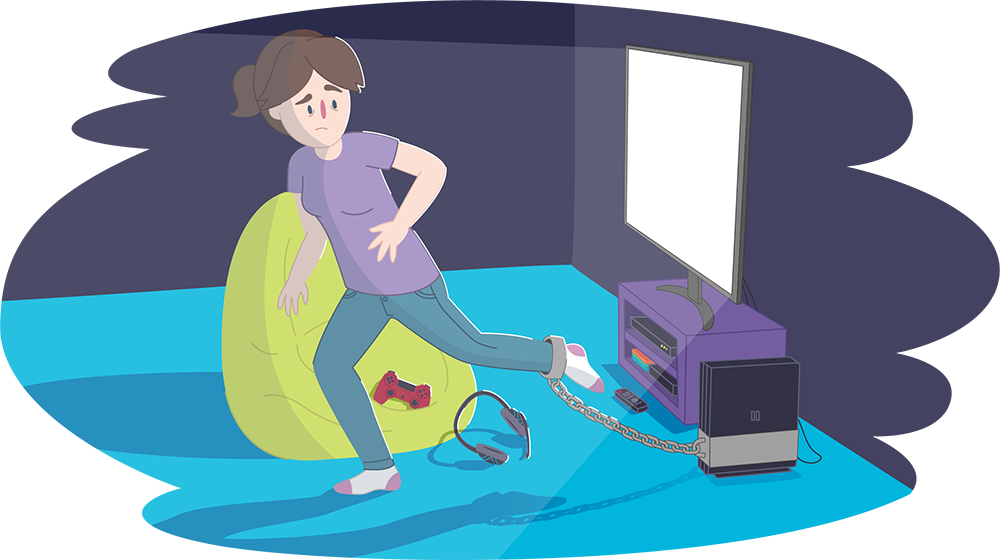Definition
Internet gaming anarchy is characterized by a severely reduced control over gaming, resulting in an increasing gaming time and leading to negative consequences in many aspects of the individual life: personal, family, social, occupational, and other relevant areas of functioning (World Health Organization).
The negative effects of video games are:
1. Dopamine addiction–dopamine is a neurotransmitter that regulates the feeling of pleasure from video games. When you play video games, your brain continually releases dopamine and occasional random bursts. Over time, your brain gets used to this steady supply of dopamine, and therefore the nucleus accumbens requires even more dopamine release for gaming to feel fun. That prevents you from enjoying anything that is not as stimulating as a computer game.
2. Alexithymia and emotional suppression- video games will calm down the amygdala which governs negative emotions. Constant suppression of negative emotions can lead to a condition called alexithymia i.e. inability to determine internal emotional states.
3. Repetitive stress injuries and other health risks- Gaming requires strenuous, repetitive motion on the hands and wrists (sometimes for hours on end). These motions can cause inflammation and injury. Obesity, eyestrain, and malnutrition are risk factors of gaming.
4. Poor mental health- maladaptive coping strategies, negative emotions, low self-esteem, and a preference for solitude, are some examples of poor mental health.
5. Relationship issues- when people spend more time playing video games, there is almost no time left to talk to friends and family, which leads to relationship issues.
6. Social disconnection- the social interaction skill will deteriorate when the child spends more time gaming and will lead to social anxiety.
7. Exposure to toxic gaming environments- most of the games are more competitive than others and the competitive mind sometimes does not bring out the good in people.
8. Poor academic or professional performance- while students spend more time on gaming activities they will lose interest in academics and it will lead to poor scholastic performance.

Strategies to get rid of Game Addiction
• Track and Limit Game Time
Start by keeping an eye on the game. The computer should be relocated so that family members can keep an eye on how much time a child spends playing video games. Establish clear boundaries and enforce them with a timer, productivity tools, or apps that may block or turn off games on a computer or other device.
• Maintain Firm Consequences
When a child exceeds the allotted gaming time or plays without fulfilling the necessary requirements, such as doing their chores, finishing their homework, or receiving a poorer grade, firm and consistent consequences should be applied.
• Put Gaming in Perspective
The child should be encouraged to participate in various sports and hobbies by family and friends. Create a list of tasks and opportunities that can be completed in the same amount of time as gaming.
• Support Moderate Play
Playing constructive computer games can enhance cognitive abilities and enhance academic performance as well as social and self-esteem. Practical Advice and Guidance about Video Game Addiction.
It is important for parents and professionals to learn what video games kids are actually playing. A few objectives for children should be the focus of parents and professionals. They should:
1. Help them choose suitable games which are still fun
2. Talk with them about the content of the games so that they understand the difference between make-believe and reality
3. Discourage solitary game playing
4. Guard against obsessive playing
5. Ensure that they have plenty of other activities to pursue in their free time besides playing video games.
If you need any help regarding game addiction, compass clinical psychology services provide therapy for the same.
